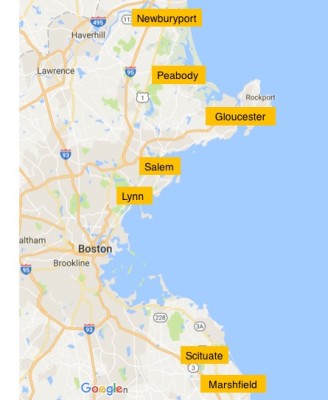Jul
Leveraging Open Data for Climate Resilience Planning in Boston
Prioritizing cost-effective green infrastructure interventions in South Boston
Boston’s largest waterside park, the Joseph Moakley Park, separating South Boston from Dorchester, is currently undergoing a comprehensive planning review that seeks to address the area’s growing vulnerability to stormwater and flooding events. Last year’s much heralded Boston Climate Adaptation report warned that the low lying topography of the park and flanking I-93 provides a critical flooding pathway from Dorchester Bay exposing land-inward neighborhoods including South Boston and the South End.
Modeling flooding probabilities around Joseph Moakley Park
The modeling results below, which I generated with a new tool from the Trust for Public Land, illustrate exemplarily that by 2070 the chances are 10-50% in any given year that the immediate areas around Joseph Moakley Park (signified by red dot on map below) are flooded. This corresponds to an average flooding recurrence interval of every 2-10 years for those areas colored light purple (on average every 10 years) to azure-blue (on average every 2 years).


